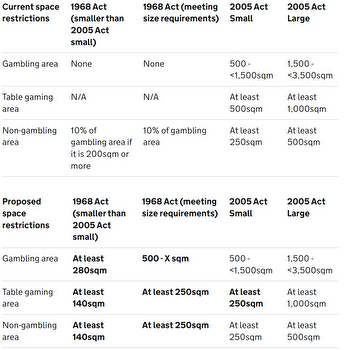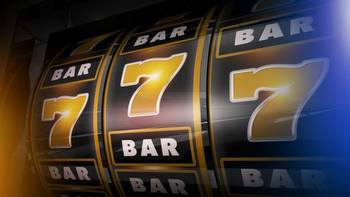Gambling White Paper Consultations: Remote Game Design
On 26 July 2023, the Gambling Commission (GC) published their first set of consultations on the Gambling White Paper, which cover four key areas:
- Improving consumer choice on direct marketing
- Strengthening age verification in premises
- Remote game design
- Remote gambling: financial vulnerability and financial risk
This article focuses on remote game design.
Background
In October 2021, the GC introduced new requirements to its Remote Gambling and Software Technical Standards (RTS) in respect of online slots, with the intention of limiting certain features that it deemed associated with harmful play. The Government stated in the White Paper that the initial evidence suggested such controls had had a “positive impact”. Such a view has since been supported in the GC’s published assessment of the impact of the changes, in which it claims “indications of reduced play intensity with no significant negative impacts on play or behaviours” can be seen.
a coherent system of safer product design standards”, the GC is now consulting on changes to the RTS and new requirements in order to make online products (not just online slots) safer and to increase players’ understanding of gameplay.
The consultation states that the GC’s proposals are “targeted at features which can lead to negative effects on consumers, such as excessive gambling, without impacting the majority of play”. The GC is targeting its intervention at the fastest products and proposing to remove features which can negatively impact player behaviour by encouraging players to play quickly or intensely or make use of features which may mislead consumers or create dissociation from awareness of play. The proposals are designed to extend the safer game design requirements introduced for online slots to other forms of online gambling.
The GC’s consultation focuses on seven areas:
- Player-led “spin stop” features
- Speed of play
- Autoplay
- Effects that give the illusion of “false wins”
- Operator-led simultaneous products
- Display of net position and time spent
- Information security standards
Player-led “spin stop” features
The first proposal suggests expanding the existing RTS requirement 14E (which currently only applies to slots) to apply to all gambling products in order to mitigate the associated risks. This requirement aims to restrict the use of features which accelerate gameplay and create an illusion of control such as “turbo”, “quick spin” and “slam stop”. In the consultation, the GC recognises that “these features are less prevalent on non-slots than slots products, however they do exist and can be found on variants that often advertise speed as part of the game name, indicating faster gameplay”.
This proposal is based on findings from the GC’s market impact data and the Patterns of Play Research, both of which highlight that the average wager on casino games exceeds that of slots, even though the average monthly amount wagered is higher for slots. Additionally, it emphasises that casino games result in the highest loss per minute during gambling activities.
Speed of play
The GC is proposing to introduce a new sub-section to RTS 14 which would require a minimum spin duration of five seconds for all casino games, with the exception of slots and poker.
While a minimum speed of 2.5 seconds already applies to slot products (introduced by the changes made to the RTS in October 2021), the GC aims to mitigate the risk and intensity associated with non-slot casino games, particularly those that currently have faster gameplay than slots. Research cited by the GC has shown that a faster game cycle speed is linked to higher risks for consumers.
Instead of enforcing the same 2.5 second minimum speed requirement already in place for slots, the GC is suggesting a minimum spin speed of 5 seconds for these games. The recommendation is based on sample industry data gathered from online roulette, blackjack and other games which included mechanical and ‘live’ versions facilitated by a croupier similar to land-based games. In the majority of cases, the data highlighted that the minimum game speed was slower than the existing 2.5 second minimum for slots. Consequently, the GC concluded that while a 2.5 second speed requirement would address the issue of a small minority of products having faster gameplay than slots, it would not effectively reduce the overall intensity of these games. In fact, the GC considered that it may lead to the unintended consequence of increasing average casino game speed as licensees adapt and develop new titles.
Autoplay
The third of the GC’s proposals focuses on the use of auto-play functionality in online gambling, which it links with increased risks of gambling-related harm due to its ability to remove decision-making and accelerate gameplay. Currently, under RTS requirement 8, auto-play is prohibited for online slots only, but permitted for other products subject to certain controls being in place. The GC suggests expanding the prohibition to encompass all online products.
In the White Paper the Government states that industry data indicates autoplay is less frequently employed in non-slots products, however the GC is concerned by what it deems to be autoplay’s ability to accelerate gameplay and “remove important opportunities for thought and reflection from customers”.
It is important to note that concerns were raised about the impact on individuals with disabilities or other physical conditions for whom auto-play might be beneficial. However, the proposal considers that these players are still exposed to the risks associated with autoplay functionality and invites further input and substantiating evidence during the consultation process.
Effects that give the illusion of “false wins”
The fourth proposal aims to address the issue of “false wins” in online gambling which can create the illusion of success when the actual outcome is a loss. To combat this, the GC proposes an expansion of the current RTS requirement 14F, which currently prohibits the celebration of “wins” equal to or less than the initial stake in online slots, to encompass all online casino products.
The original ban on slots was implemented due to the perceived risk of losses being portrayed as wins, thereby heightening the enjoyment of non-winning game outcomes. The consultation recognises that while non-slot products typically have a higher average speed than slots, the difference is not significant enough to eliminate the risk of positive reinforcement of losses. Consumers may still be misled into thinking their losses are lower than they are or encouraged to have a more positive perception of losing.
Operator led simultaneous products
The GC is putting forward a proposal to extend the current RTS requirement 14C - which prohibits operator-led functionality enabling players to play multiple slots games simultaneously - to encompass all online gaming activities, including bingo, as well as betting on virtual events.
Under these proposed changes, operators would be prohibited from offering features designed to enable consumers to simultaneously play multiple iterations of the same game, such as two roulette tables, or multiple games of different types concurrently, such as playing roulette while engaging in a poker game. It's important to note that these proposals would not prevent consumers from playing multiple poker tables simultaneously or from purchasing multiple bingo entries.
These proposals are informed by the findings of the health survey and Patterns of Play research, which indicate that consumers who engage in gambling across multiple products tend to score higher on the Problem Gambling Severity Index. Furthermore, consumers who participate in both sports betting and gaming products are found to incur higher losses compared to those who exclusively gamble on one or the other. The GC highlights that simultaneous gambling on multiple products can lead to reduced decision-making time and heightened risks for consumers.
Display of net position and time spent
Proposal six involves enhancing transparency for players by displaying information about their gambling sessions, specifically their net financial position and elapsed time. Following a previous consultation, the RTS 2E and RTS 13C requirements were introduced to mandate the display of elapsed time and net spend for slot products. This initiative aimed to provide players with upfront information, aligning with responsible game design principles and the National Strategy to Reduce Gambling Harms. The GC is proposing to extend these requirements to other casino products. However, it is worth noting that peer-to-peer poker has been excluded from these proposals based on findings from the Patterns of Play research, which identified poker as a lower-cost activity over time when compared to slots and other casino products
Information security standards
The final proposal addresses information security standards for remote gambling operations. Existing security requirements, based on the ISO 27001 standard, aim to protect consumers from security risks in remote gambling, given the handling of sensitive data and consumer deposits. In 2022 the ISO 27001 was updated. The GC have reviewed that update, in order to identify whether any additional requirements should be enshrined in the RTS, and they propose to introduce 5.23 of ISO27001 which relates to cloud service security. The consultation seeks input on including this new provision and whether there are other provisions that should be included.
Our thoughts
The majority of the GC’s proposed changes to the RTS are to take existing requirements that only apply to online slots, and apply these equally to other online products. These changes are targeted at features that the GC deems as have negative effects on players, aiming to reduce harm for those who gamble quickly or intensely, or use features that may mislead or disconnect them from the awareness of their gameplay. Given the technical developments that will be required in order to ensure compliance, and the sheer number and range of games that will be affected, it will be interesting to see – once the GC responds to the consultation feedback - the timeline that the GC sets for compliance.
The GC’s first set of consultations closes on 18 October 2023. Please click here to provide a response.
Co-authored by Bronagh Miller, Trainee Solicitor at CMS


































